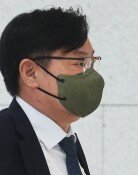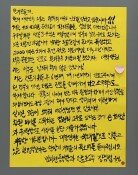Overworked youth taking their own lives
Overworked youth taking their own lives
Posted December. 30, 2016 07:02,
Updated December. 30, 2016 07:31
Matsuri Takahashi was an aspiring youth, a 24-year-old woman fresh off the prestigious Tokyo University. The year of 2015 turned out to be both the best and worst years of her life. When Takahashi landed a job in Dentsu, a Japanese advertisement agency with international reputation, Takahashi, her heart swollen with new hopes and enthusiasm and she was the envy of her peers. Her days at work, however, proved to be a series of hardships from Day 1. “I am worn out, physically and mentally,” “I am deprived of all emotions but the desire for sleep,” “I cannot sleep at night as I am afraid of tomorrow,” “Work to live or live to work?: Life only begins when the line blurs between those two questions.” Those are the postings that she left on her social media pages before taking her own life on Christmas last year.
One can only imagine what drove her to such a tragic end within a span of eight months. Investigation found that the death of the promising employee was attributable to overwork. Her overwork time ran more than 100 hours a month. There was even a week when she worked 53 hours straight except for 17 minutes she was briefly out of office. The practice was illegal but she was forced into reducing her billable time when reporting. When the news broke out, Japan was gripped by shock. On Tuesday, Takahashi’s boss was sent to the prosecution by the Tokyo Labor Bureau on charge of violating wage and hour law, and on Wednesday, Tadashi Ishii, the CEO of Dentsu, announced his resignation.
“Of the 7000 or so employee, I think 2,000 are in the same place where Takahashi was,” said a female employee at Dentsu during an interview after her colleague’s death. Indeed, the Japanese advertisement agency, which hires almost 47,000 workers, is notorious for its grueling yet unpaid working hours and extreme work intensity. In 1991, a 24-year-old worker committed suicide at Dentsu. In a response to the compensation claim filed by the bereaved family, the high court gave a ruling that “the company must be aware of and bear obligation for the mental and physical health of its employees”; the firm’s cruel history repeated itself yet again.
According to the Nihon Keizai Shimbun, a Japanese daily, on Wednesday, as of 2014, the share of employees working more than 49 hours a week stood at 32.4 percent in Korea, higher than any other country surveyed, while Japan stood at 21.3 percent. Equating overwork with corporate loyalty is an outdated practice incongruous with the current industrial environment, which is entering into the era of a Fourth Industrial Revolution. Only when companies compensate the true merit of a worker instead of their working hours, would it be possible to stop more youth from taking their own lives. Inaction is not an option.
mskoh119@donga.com
Headline News
- Med professors announce intention to leave hospitals starting Thursday
- Bridge honoring Sgt. Moon Jae-sik unveiled in Pennsylvania
- Chief of Staff Chung tells presidential secretaries to stay away from politics
- US FTC bans noncompete agreements
- N. Korea launches cyberattacks on S. Korea's defense companies







